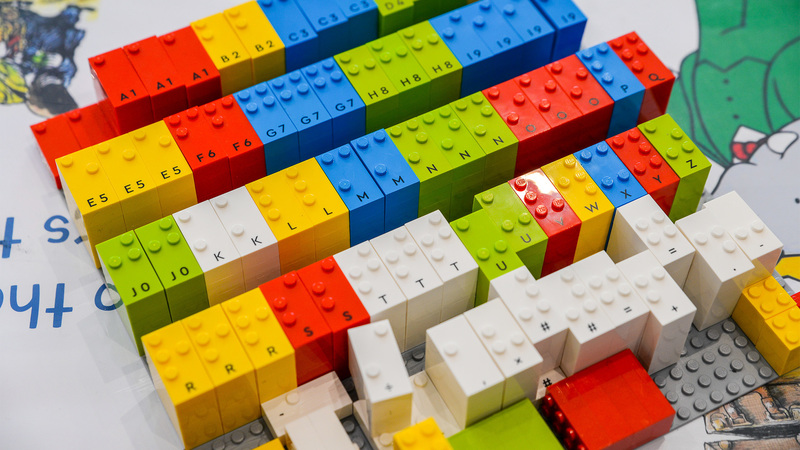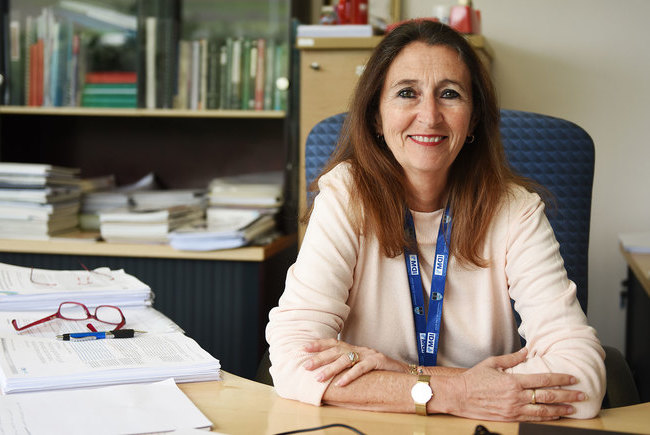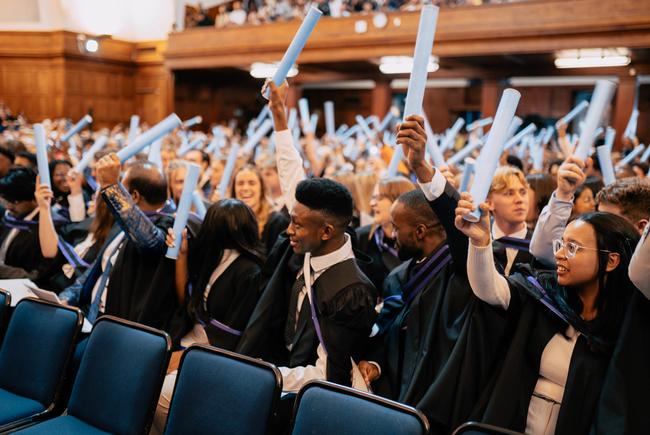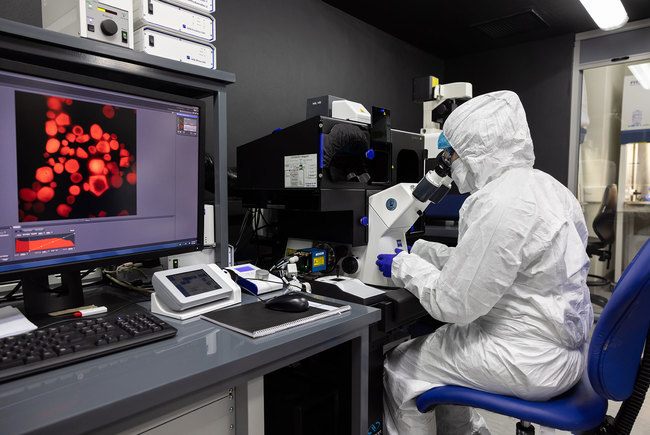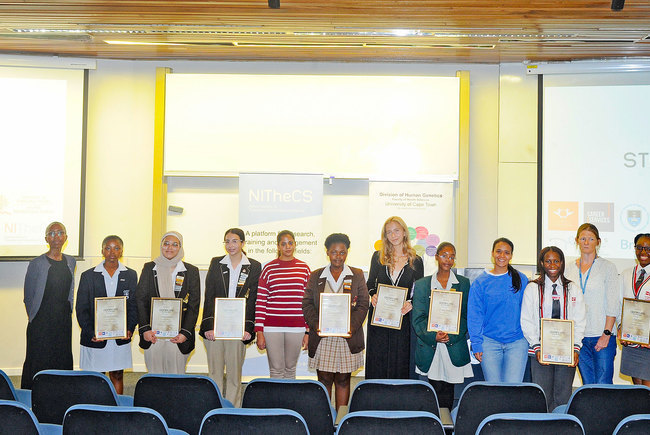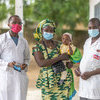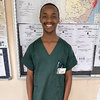UCT on board as innovative Lego Braille Bricks project enters new national phase
08 March 2024 | Story Niémah Davids. Photos Robin Thuynsma. Videography Ruairi Abrahams. Video Edit Ruairi Abrahams. VP Team Roxanne Harris, Ruairi Abrahams, Boikhutso Ntsoko. Read time 7 min.If you thought Lego’s interlocking bricks were designed solely to construct your next colourful building display project on your living room floor, think again!
These much-loved, brightly coloured building bricks that nurture creativity and encourage an overactive imagination also help blind and visually impaired children to read. And thanks to a ground-breaking project, spearheaded by the Lego Foundation, in partnership with the University of Cape Town’s (UCT) Including Disability in Education in Africa (IDEA), and BlindSA, blind and visually impaired children in South Africa will now have an opportunity to put it to the test. The extended pilot was launched at the Museum of Childhood on Tuesday, 5 March.
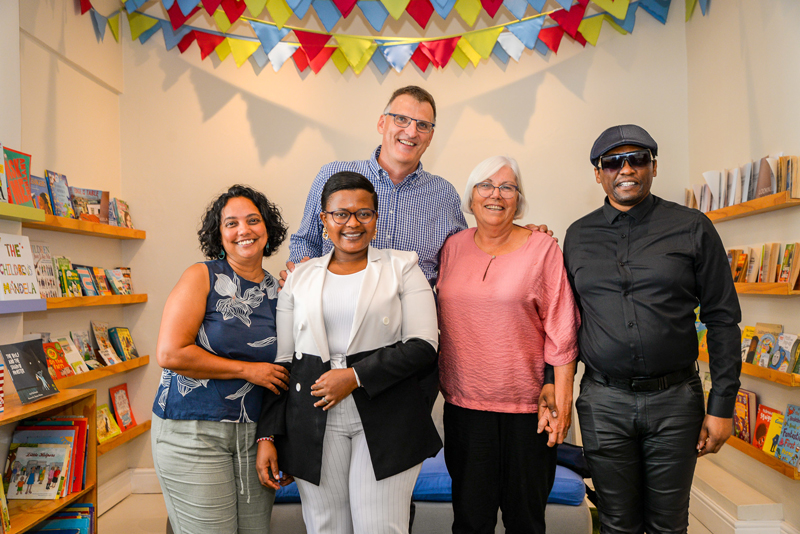
The Lego Braille Bricks (LBB) project is a playful methodology that teaches Braille to children who are blind or visually impaired. Each colourful Lego brick is molded with studs that correspond to numbers and letters in the Braille alphabet and also include a corresponding printed symbol or letter. The concept aims to level the playing field between sighted and blind children because it allows them to play and learn together. The extended pilot project will be trialed and tested in four schools in the Western Cape and Gauteng, and if successful, is set to fast-track inclusive education for blind and visually impaired learners and capacitate teachers’ competencies in the country. The concept of learning through play will also assist with teaching and learning Braille literacy in a fun and engaging way.
“We believe this project holds immense promise in shaping the future of inclusive education and fostering a more equitable learning environment.”
“We believe this project holds immense promise in shaping the future of inclusive education and fostering a more equitable learning environment. This launch event serves as an opportunity to share the innovative work that lies ahead and celebrate the commencement of a very impactful journey,” said Dr Richard Vergunst, research officer at IDEA.
Expanding the project
The LBB project was piloted in 2022 and implemented in partnership with BlindSA, an independent consultant, as well as four schools and 11 practitioners who were trained in the LBB concept. Following the initial training session, Dr Vergunst said practitioners were given roughly two months to introduce LBB in their classrooms. Based on the introduction, research indicated that children enjoyed the concept and practitioners considered it a “valuable tool in the South African context”. He said the first pilot project confirmed participants’ interest and engagement and created a space for its extension.
So, the next phase gives the project wings to fly and will expand the initiative to ensure it reaches additional teachers, auxiliary staff and blind and visually impaired learners in the country.
The 12-month programme will focus on:
- developing and executing a pilot practitioner training programme of the LBB concept
- creating and testing a provisional master training of trainers’ approach
- developing a national plan to scale the LBB project in partnership with relevant stakeholders
- developing evidence and learning framework to capture system, practitioner and child-level outcomes.
Vergunst said the pilot will focus on training educators to use the LBB concept; monitoring and evaluating its roll out, as well as the pros and cons through ongoing research; and depending on its success, scaling the project nationally.
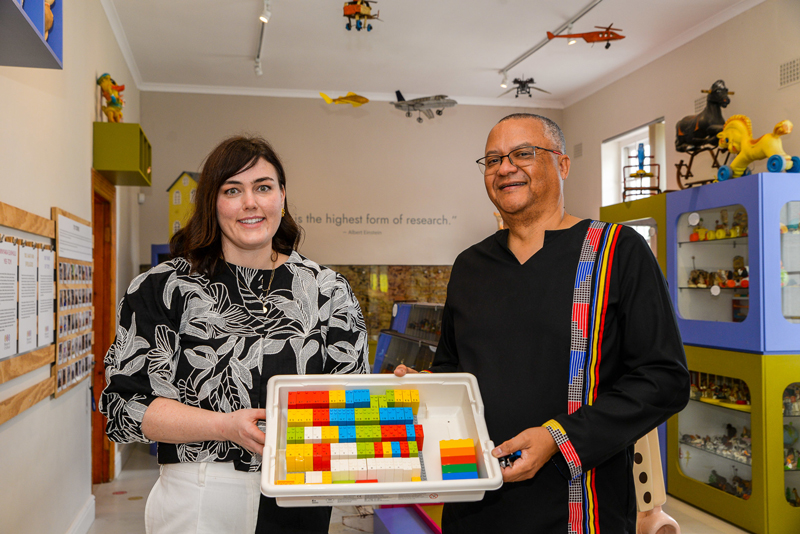
“The LBB project aims to extend the pilot programme to more educators, auxiliary staff and visually impaired learners, and to increase children’s access to learning through play by strengthening training and professional development of educators, their competencies, and creating an inclusive environment through play for all children,” he said.
Championing holistic child development through play
According to Reilly Ross, the Lego Foundation’s senior programme specialist for South Africa, the foundation’s mission is clear: “We really want to unlock every child’s potential through the transformative power of play. We firmly believe that play is not just recreation, but a fundamental driver for children’s learning, growth and well-being.”
She described the LBB project as an innovative experience that merges the tactical nature of Lego bricks with the Braille alphabet – empowering blind children to cultivate literacy and holistic skills. And more than fostering a love for learning, Ross said Lego hopes that the project will nurture a sense of belonging and equal opportunity among children.
“Over the next decade, we commit to working hand in hand with our partners like you to ensure enduring impacts for children from birth to 12 – fostering quality learning experiences for children. Together we’ll cultivate robust relationships to impact playful learning into the fabric of children’s growth and development,” she said.
“Let us continue to innovate, collaborate and advocate to ensure that every child, regardless of their ability, has the opportunity to learn, grow and transform through the power of play.”
“As we embark on this journey together, we recognise the potential to redefine accessibility and inclusion in education not only in South Africa, but globally. So, let us continue to innovate, collaborate and advocate to ensure that every child, regardless of their ability, has the opportunity to learn, grow and transform through the power of play.”
An exciting initiative
Delivering his closing remarks, Jace Nair, the CEO of BlindSA, said his organisation is excited for the second phase of the project and looks forward to witnessing its success and national scale-up in due course.
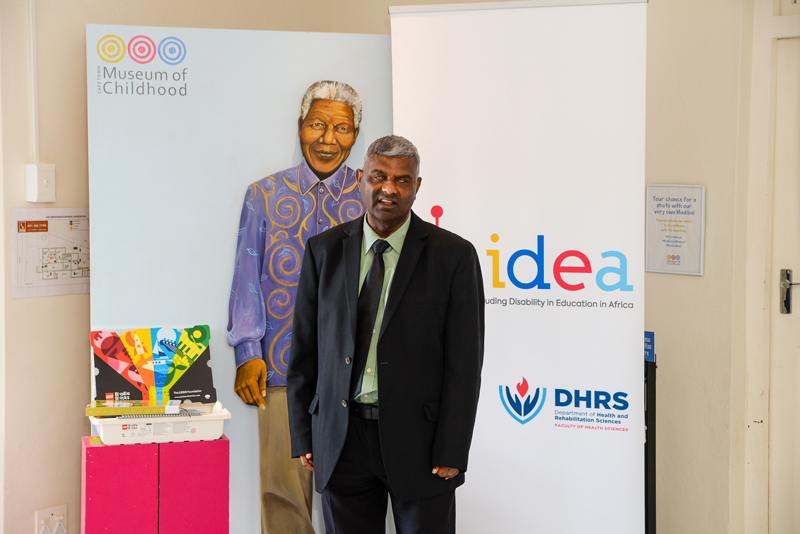
To ensure it does well and maintain its longevity in the country, he said getting the right delegates on board to understand the concept and its benefits for blind and visually impaired learners is essential. Nair encouraged representatives from the national and provincial departments of Basic Education and school management teams to join the conversation and to develop an understanding of what LBB is all about. In addition, he said, advocating parents of blind and visually impaired learners for their buy-in is as important.
“Parents play a very important role in the lives of our children and how we bring them on board to support this campaign of including Braille literacy for young people [in schools],” Nair said.
“I think we want to see it taking place in all our schools in the country and we believe [it] also offers a unique opportunity for us to fast-track inclusive education.”
“I think we want to see it taking place in all our schools in the country and we believe [it] also offers a unique opportunity for us to fast-track inclusive education so, that our children [entering] the foundation phase can go to mainstream schools and teachers there will be capacitated, so that these children can be integrated into mainstream schools at an early age. And having Braille and print on the Lego bricks will make it easier for that integration to take place.”
Others who contributed to the afternoon programme included Associate Professor Lionel
Green-Thompson, the dean of the Faculty of Health Sciences; Professor Roshaan Galvaan, the head of the Department of Health and Rehabilitation Sciences; Professor Judith McKenzie, the director at IDEA; and Chantal Samuels, research coordinator at IDEA.
 This work is licensed under a Creative Commons Attribution-NoDerivatives 4.0 International License.
This work is licensed under a Creative Commons Attribution-NoDerivatives 4.0 International License.
Please view the republishing articles page for more information.
Faculty of Health Science News


